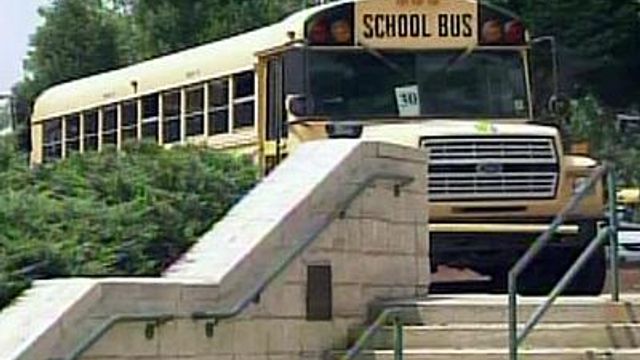USDA letter raises issue with old Wake student assignment plan
Free and reduced-priced lunch data can't be considered by school districts in determining where students go to school, according to documents released this week related to a civil rights investigation of the Wake County school system.
Posted — UpdatedThat’s according to a letter and e-mail exchanges from federal investigators that are part of documents released this week in an ongoing federal civil rights investigation into the Wake County Public School System’s controversial assignment policy adopted last fall, which is partly based on how close students live to schools.
The documents, which were provided to the U.S. Office of Civil Rights by the school system, were released as part of a public records request from WRAL News and other media outlets.
In a split-decision last year, the school board voted 5-4 to eliminate its decade-old policy of busing students to help ensure that no school has more than 40 percent of its student population receiving free or reduced-priced lunches – an indicator used to help balance each school’s socio-economic diversity.
But a Feb. 26, 2009, letter from the U.S. Department of Agriculture to the state Department of Public Instruction, as well as e-mails last month between school board attorney Ann Majestic and federal investigators, indicate that, because student assignment is considered a local education program, the free and reduced-priced lunch data cannot be used as a factor in student assignment.
Majestic had asked in the e-mails for clarification of the letter and law, saying "it seems the board could not continue with its past practices, even if it wanted to."
The interpretation of the two attorneys responding to Majestic was that, even though the board didn’t look at individual student information, law prohibits the school system from using any information related to free and reduced-price lunch data.
The state NAACP, which filed the civil rights complaint last year, had no comment Thursday, other than to say it was looking at the e-mail exchanges and whether the conclusions in them are the law or interpretations of the law.
School board members also question the interpretation, since free and reduced-priced lunch information is used in the federal No Child Left Behind Act and North Carolina’s state education report card uses the data to rate schools.
The USDA letter mentions federal and state education programs, but it’s unclear if those are authorized to use the information.
Education experts say the U.S. Secretary of Education might have to clarify the issue soon, as many school districts nationwide use similar programs for student assignment purposes.
School board member John Tedesco, who chairs the board’s Economically Disadvantaged Student Performance Task Force, said the documents mean the school board is "on the right track" in its new student assignment policy, which takes effect in the 2012-2013 school year.
Superintendent Tony Tata is developing a plan to implement the new policy and is looking at a "controlled choice" model, which considers four factors for student assignment: stability for students, choice for parents, assigning students to schools close to their homes and student achievement.
• Credits
Copyright 2024 by Capitol Broadcasting Company. All rights reserved. This material may not be published, broadcast, rewritten or redistributed.





